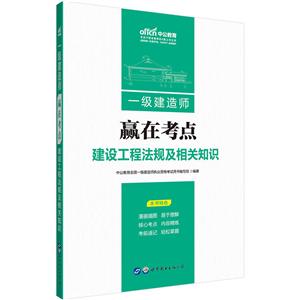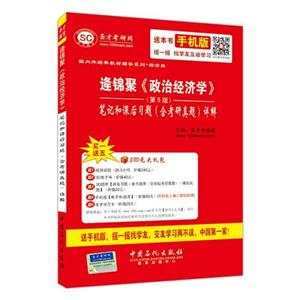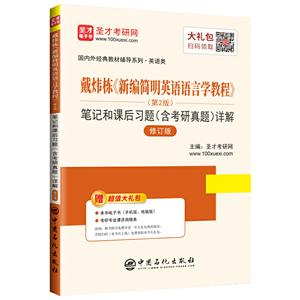我从新疆来

|
我从新疆来作者:库尔班江·赛买提(Kurbanjan S 开 本:24cm 书号ISBN:9787510457159 定价: 出版时间:2016-06-01 出版社:新世界出版社 |
我从新疆来 内容简介
维吾尔族纪录片摄影师库尔班江·赛买提用镜头讲述的关于自己,关于新疆和新疆人的故事。《我从新疆来(英文版)》中讲述了作者和100个在内地工作和生活的新疆人。他们来自不同的民族,有着不同的年纪和性别,有着不同的宗教信仰,生活于中国社会的各个区域和角落,工作在各行各业。通过他们的故事,读者可以感知一个真实存在的新疆和生活着的新疆人,从而对新疆有全面和客观的了解。
我从新疆来 目录
Preface by Wang Meng: The Brightness of I Am from Xin]iang on the Silk RoadPreface by Na Risong: Fellow Members of the China Family
My Past 30 Years
The Inseparable Bond of Love
Footprints for Future Generations
Home Is Best
Transient Happiness, Lasting Dream
A Feel of Xinjiang through Differences
Epilogue by Huang Zhangjin: Where Am I from?
Afterword by Kurbanjian Samat: 1 Am from Xinjiang
我从新疆来 节选
《我从新疆来(英文版)》: Stitclung Up the Cracks with Songs In 1973, I was born in an Uyghur family in Hotan. Because I had many siblings, my parents feared that they might not be able to keep me alive with their limited financial resources. So, right after I was born they gave me over to Hong Wenbiao and Yu Youchun, a Han Chinese couple on an aid mission from Chun'an, Zhejiang Province,who adopted me and named me Hong Qi. The 1970s were a time of material scarcity and it was hard to come by any milk. My mom asked a friend to get milk and cod liver oil from Shanghai and fed me therewith. As a result, I managed to survive. Four years later, my mom gave birth to her own son - my younger brother, Hong Yan, but I have never doubted they are my kinsmen. The way they loved me made me feel as if I were their biological son and my brother was the adopted son instead. As a kid, I used to bully my brother a lot, but we grew up being close friends. As a kid, I had a stubborn pride. One day in class, I had a run-in with a teacher and got driven out of the classroom. I was so mad that I bought a train ticket and went to see my grandma without telling my parents about it. When my mom heard about it,she went to Grandma's home to get me. When I knew she was coming, I immediately headed back home just to elude her. When she arrived at Grandma's house and knew I was gone, she wept all the way back home to catch me. As soon as she was home, she invited the aunt from Shanghai to testify about the process of my adoption. I was quite calm when I heard the story because even as a child I had heard people hint at it and had sensed the true account of my origin. But deep in my heart I saw this loving couple as my true parents but I never hated my birth parents who had to abandon me. I have longed to see my biological parents, but I feel happy to be where I am, because, in my opinion, I was brought up in a family of love, tolerance and understanding. By contrast, my birth parents seemed as remote as a dream. I quit school before finishing junior high and joined the army at age 17. My army unit was stationed at the edge of the Taklimakan Desert, along the Tarim River, and my main mission was to guard the labor camp. I was a free-willed person who resented the restraints of disapline in the army and I felt as if I were in "hell." After just three months in the army, I made my first attempt to escape, but got caught and sent back. When I saw my comrades write home and request to be sent back home, I did the same but never succeeded in getting what I wanted. Slowly, I got used to life there and began to understand the society and realized that I had no capacity to face the kind of competition I was involved in. The military became an important turning point in my life. My heart was fflled with passion as I observed a landscape that was totally different from the city I had grown up in. I gradually came up with an urge to write songs and sing as I strolled in the Gobi Desert, stood on night duty in the empty watchtowet, or labored on worksites in the scorclung sun. After leaving the army, I was assigned to work at the trade union of the Fourth Production and Construction Corps. When I first arrived at the office, I saw people chatting over a newspaper and immediately felt the new job was totally unfit for me. I borrowed 300 bucks from my father, took a train to Xi'an, and began a long, hard but fun career of singing. It has been a mixture of pain and joy.I have published three albums so far and have engaged in some public welfare activities such as the "focus on vagabond children" campaign. We live in a diverse and specific world. It is appropriate to say that I sympathize more with myself than with Uyghurs. Like the great majority of Uyghurs, I am socially disadvantaged because I have neither a strong background nor any special resources. I hate to see Uyghur or Han prejudice one way or the other and I can't bear extremism on either side. An important part of my future work is to use my songs to stitch up the cracked world,however ineffective it may be. Most recently, I established a cultural industrial park in the theme of Xinjiang in Shenzhen to carry out cultural exchanges. I travel frequently between Xinjiang, Beijing, Shanghai and Shenzhen, and I hope to get this project done within this year. ……
中小学教辅 英语阅读
在线阅读
- 最新内容
- 相关内容
- 网友推荐
- 图文推荐
| [高考] 2022 西安电子科技大学《软件工程》大作业答案 (2022-04-25) |
| [家长教育] 孩子为什么会和父母感情疏离? (2019-07-14) |
| [教师分享] 给远方姐姐的一封信 (2018-11-07) |
| [教师分享] 伸缩门 (2018-11-07) |
| [教师分享] 回家乡 (2018-11-07) |
| [教师分享] 是风味也是人间 (2018-11-07) |
| [教师分享] 一句格言的启示 (2018-11-07) |
| [教师分享] 无规矩不成方圆 (2018-11-07) |
| [教师分享] 第十届全国教育名家论坛有感(二) (2018-11-07) |
| [教师分享] 贪玩的小狗 (2018-11-07) |






